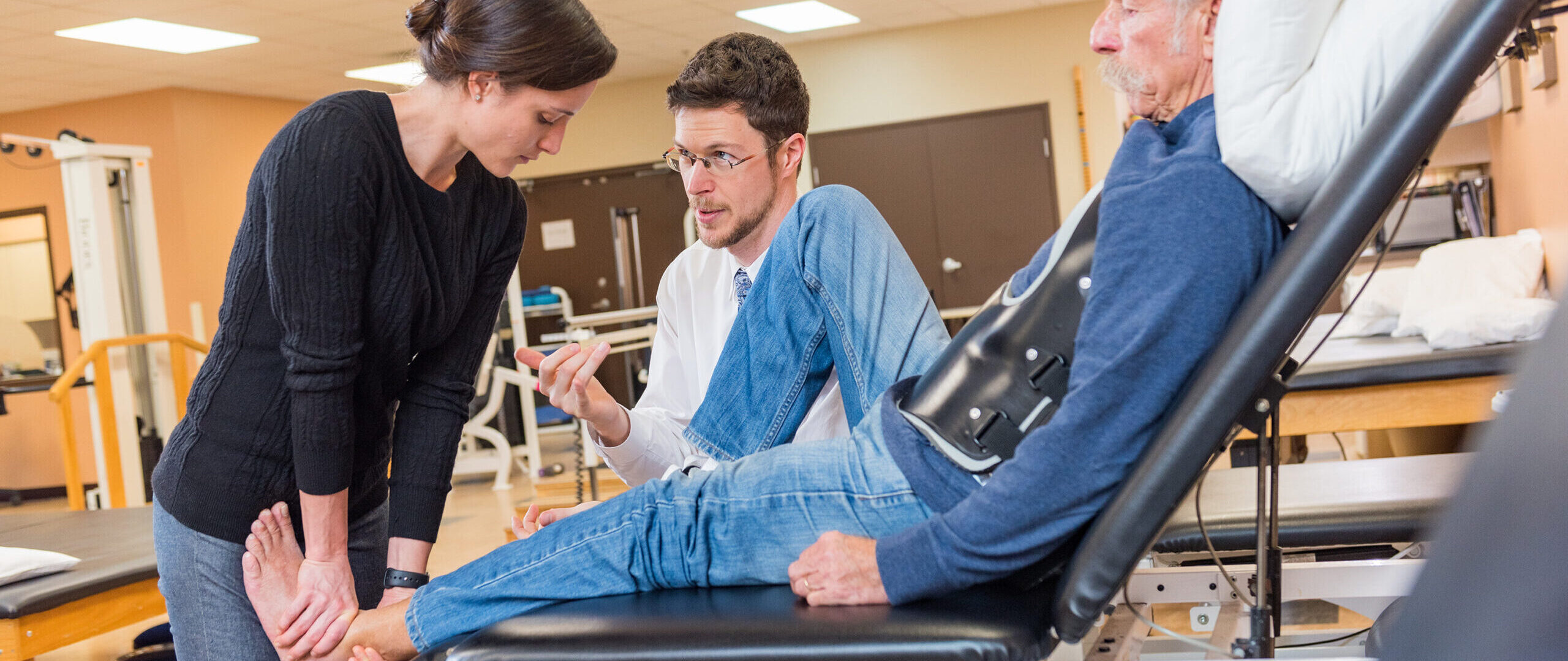What Is Multiple Sclerosis?
Multiple sclerosis is a disabling disease that affects the central nervous system. There are about one million Americans currently living with this condition. MS affects myelin, which covers and protects your central nervous system. Once this part is affected, your nerves don’t communicate with each other effectively.
There are different types of multiple sclerosis with varying severity, including:
- Clinically isolated syndrome: the first stage of neurological symptoms before the diagnosis of MS
- Relapsing-remitting multiple sclerosis (RRMS): the most common type of MS. Patients experience flare-ups in their symptoms with full recoveries in between attacks
- Secondary progressive multiple sclerosis (SPMS): a later stage, where the symptoms worsen steadily while experiencing patches of good health
- Primary progressive multiple sclerosis (PPMS): patients experience a steady decline in health without MS relapse or remission
- Tumefactive MS: causes tumor-like lesions
- Pediatric MS: a rare form of MS that affects children, adolescents, and teenagers
What are the signs and symptoms of Multiple Sclerosis?
There are multiple signs and symptoms of multiple sclerosis, including:
- Fatigue that lasts even after rest
- Difficulty walking and maintaining balance
- Stiffness and or feeling heaviness in arms and legs
- Bowel and bladder problems
- Sexual dysfunction
- Double vision, blurry vision, and loss of eye movement
- Speech and swallowing problems
- Memory and thinking problems
- Neuropathic pain – a burning sensation and skin sensitivity
How is Multiple Sclerosis diagnosed?
Though there is no single assessment that confirms MS, there are a few tests that a doctor may use to support a diagnosis:
Neurological examination
A neurologist will look for neurological abnormalities like weakness in your vision, hand and leg strength, speech, reflexes, and eye movement. These may help determine whether your nerves are damaged enough to suggest MS.
MRI scans
MRI is a painless scan that uses strong radio waves and magnetic fields to produce detailed images of the internal organs. An MRI scan shows whether there’s scarring or damage to the myelin sheath in your spinal cord and brain.
Evoked potential test
The doctor will place electrodes (small sticky patches) on your head while you view various light patterns – this helps monitor brain waves. This painless test shows whether your brain takes longer than expected to receive messages, which may result from MS.
Lumbar puncture
This procedure involves the removal of spinal fluid by inserting a needle into your lower back. This fluid will help determine whether there’s a problem with the nervous system.
Blood tests
Your doctor may perform a blood test to rule out a rare but similar condition known as neuromyelitis optica.
Learn more about how MS is diagnosed.
What rehabilitation options are available for MS?
There are different types of rehabilitation for multiple sclerosis since it affects people differently and, currently, there is no known cure. These rehabilitations focus on a speedy recovery from attacks, slowing progress, and managing symptoms. Here are some of the rehabilitation options that you can pursue:
Psychologists
It can be challenging to deal with multiple sclerosis. Patients usually struggle with negative feelings and low moods. However, psychological therapies can help deal with these negative feelings and their effects on patients’ lives. Psychological therapies take time and repeated sessions to notice an impact.
Brooks Rehabilitation offers several psychology services, including psychotherapy therapies, motivational interviewing, and pre-surgical evaluations.
Physical therapy
Physical therapy starts with a complex examination process to identify impairments like loss of sensation, coordination, weakness, pain, and balance. After the examination, our therapist will develop a specific program to help you through the rehabilitation process.
Occupational therapy
MS rehabilitation may include occupational therapy to help patients perform their usual activities. Therefore, the specific focus varies from one person to the other. However, occupational therapists focus on the following three domains:
- Self-care activities, such as grooming and bathing
- Productive activities, such as paid work, volunteering, cooking, and caring for their children
- Leisure activities, such as gardening and exercise
Speech-language therapy
Speech-language therapy for MS patients aims to improve the strength, coordination, and endurance of the mouth and throat muscles. It helps improve the ability to talk or swallow.
Exercise program
Regular exercise helps alleviate some MS symptoms and improves patient strength, bowel function, mood, cognitive function, flexibility, and bone density. An exercise program for multiple sclerosis should include five types of exercises, including:
- Aerobic or cardio exercises such as water aerobics, stair stepping, biking, and dancing
- Strength exercises to improve the upper and lower body
- Neuromotor to improve agility, balance, and hand-eye coordination
- Flexibility exercises
Aquatic therapy
During aquatic therapy, therapists match the water temperature to typical body temperature. The water provides buoyancy and decreased resistance, which help patients exercise without the impact of walking on the ground.
Can MS Be prevented?
You cannot prevent multiple sclerosis entirely, but there are several considerations you can make to reduce the possibility of its development:
- Quitting smoking
- Getting enough Vitamin D through diet and sun exposure
- Maintaining moderate body weight
- Staying active
- Minimizing your stress levels
Multiple Sclerosis Rehabilitation at Brooks
Brooks Rehabilitation offers comprehensive high-end rehabilitation services for people with multiple sclerosis in Jacksonville and surrounding areas. We connect patients with advanced technology and experienced experts to provide quality rehabilitation services. Contact us today and learn how we can help you.
